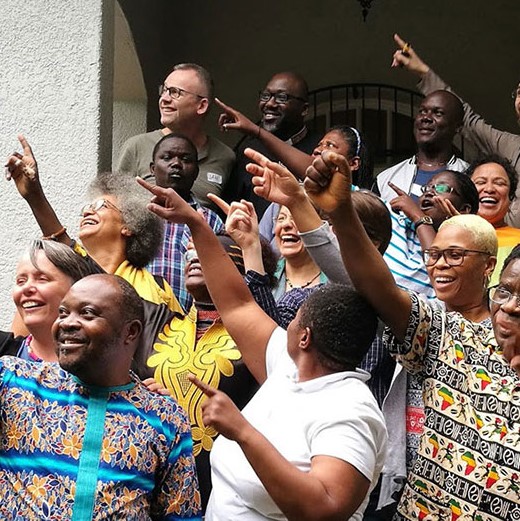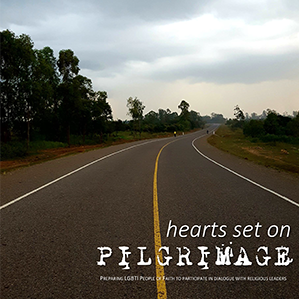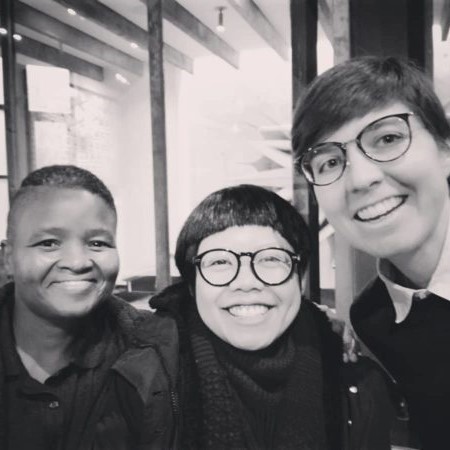26 September 2022
For Immediate Release:
On Sunday 25 September 2022, the Archbishop of the Catholic Diocese of Lusaka, requested that a communique be read out in parishes across the diocese. The communique calls congregants to ‘act against the proliferation of LGBTQ+ and other vices which are averse and seem to be on the increase corroding the fabric of our society.’
In light of the fact that the Zambian LGBTIQ+ community already faces significant violence and discrimination, we deplore this communique by the Archbishop, which, we believe will provide further justification and support for those inflicting violence on the LGBTIQ+ community. The statement by the Archbishop has the potential to further escalate violence and we are deeply concerned for the wellbeing and safety of members of the LGBTIQ+ community in Zambia.
Religious leaders are the shepherds of their flocks and have a responsibility to provide guidance, care and support to the faith community. Although we understand that for the Archbishop of Lusaka, same sex sexualities and non normative gender identities are unfamiliar we do not believe that it is appropriate, especially in a context in which people are already marginalised and subject to violence and discrimination, for the Archbishop to (in effect from the pulpit) put his stamp of approval on further violence.
It is from a Christian perspective that we ponder the effects of such statements on LGBTI Zambians. What does it mean to their sense of safety and mental health? They are pitted against their parents and families. Even supposedly hope-inducing institutions such as churches are listed as their hunters, to hunt them out.
Zambia’s constitution, while it characterises Zambia as a Christian nation, also outlaws discrimination on a number of grounds, including religion, belief, and culture and makes provision for the rights to life, liberty, security of the person, and freedom of conscience, expression, assembly, movement, and association. The Zambian Penal Code as it stands is a hangover from pre-independence Zambia and is thus a British colonial artifact.
It is clear that even within the Bible there are different interpretations of events and laws 1, and the fact that this story has become an anecdotal anti-LGBTIQ+ proof text that fixates on one that literal and decontextualised readings of the text ignore or miss much of what makes the Bible a unique text. In contrast, contextual and liberation methods of reading the Bible bring together in mutual critical dialogue the contexts of the Bible with contemporary society and scholarship, which is particularly important as decolonial discourses remind us that African traditions and knowledge must be protected from the hegemony of Western knowledge and Western forms of Christianity.
Specifically, in this case the following elements should be noted:
- The claim that sexual diversity is “un-African” is refuted by well-researched traditional practices in some communities such as women having female husbands and men having male wives; and African traditional religious leaders who are inhabited by an opposite sex ancestor and therefore exhibit characteristics of that sex, including their choice of intimate partner. People with non-normative gender identities and sexual orientations have always been part of our communities and families in the African context and claiming that LGBTIQ+ people are a ‘Western’ import is false and historically inaccurate.2
- In the African context, human sexuality has generally been conceived as a divine life-affirming gift which holistically embraces diverse human relationships and sexual expressions that lead to sexual pleasure and renewal as well as, in some cases, procreation.
- In African traditions, sexual difference has never been a reason for exclusion from family and community life. Punishing people for sexual difference by denying them the right to full participation in society is a colonial notion being advanced by the extreme religious right and those they have co-opted, and is distinctly un-African. (see The Johannesburg Declaration).
- The practice of scapegoating those most vulnerable in society in times of political change and upheaval is not a new phenomenon and numerous human rights violations and crimes against humanity have their roots in this ideological strategy. Rather than stigmatizing and othering those who are different in a society, the Church of Christ is called to protect the poor, marginalized and disenfranchised.
- Pitting faith and sexuality against each other is a false dichotomy and is harmful not only for those who identify within the LGBTIQ+ community but for all people of faith as they navigate the journey of integrating sexuality and spirituality. Rather than shading conversations pertaining to embodiment and sexuality with shame, we believe that there is a wealth of resources that could help people of faith on this journey. We believe that faith communities and faith leaders have an instrumental role to play in this process and to the development of a life-affirming sexual ethic that affirms the human dignity of all and celebrates our capacity for love, commitment and pleasure.
Our African faith and cultural traditions have long included the understanding that all human beings are created in the image of God, and have inherent dignity, and that we have a duty to care for the vulnerable and marginalized in our societies, communities and families. In light of this we deeply regret the actions of the Archbishop. The people of Zambia, just as it is the people of the African continent, deserve an opportunity to see humanity beyond heterosexuality. That opportunity has the potential for a reclamation of the African people’s history of dealing with diversity, an opportunity of understanding beyond the common narrative of dehumanization.
Rather than inciting violence and enabling discrimination, we encourage the Archbishop and the Catholic Church in Zambia to enter into a process of fellowship and discernment alongside LGBTIQ+ people of faith and skilled dialogue facilitators in Zambia and to collectively grow in the mission to offer compassion, care and love to those most vulnerable. We believe that this will resemble the posture of Christ as he reached out to those that the world despised and excluded.
In solidarity,
GIN-SSOGIE, South Africa
Ujamaa Centre, South Africa
Gender and Religion Programme, Department of Philosophy, Religion and Classics, University of KwaZulu-Natal, South Africa
Inclusive & Affirming Ministries, South Africa
Holy Trinity LGBTI Ministry , South Africa
Pema Kenya, Kenya
Nafasi innovation , Nakuru
Spectrum Uganda initiatives , Kampala , Uganda
GALCK+, Gay and Lesbian Coalition of Kenya, Kenya
Initiative for Rescue Uganda , Uganda _Kampala
Lived Realities Uganda , Jinja Uganda
Rights 4 Her Uganda , Wakiso, Uganda
Foaster Foundation For Healthcare Uganda , Uganda
Youth on Rock Foundation , Wakiso and Kampala
Uganda Key Populations Consortium – UKPC, Uganda
Women With A Mission, Uganda
Uthingo Network, South Africa
Bophelong lgbtqi+, Bophelong, Vanderbiljipark
Voice of community Empowerment , Northern Uganda
Sexual Minorities Uganda , Uganda
Trans Youth Initiative-Uganda , Uganda
Newcastle Prideful Legends, Newcastle Amajuba District
VukaVaalRainbow Movement , South Africa
Bophelong LGBTQ community, Bophelong
www.MambaOnline.com, South Africa
Imvelo , South Africa
Unit for Religion and Development Research, Stellenbosch University , Cape Town, South Africa Serving Lives Under Marginalization SLUM , Wakiso, Uganda
Men Of the Night Uganda, Kampala
Lady Mermaid Empowerment Centre , Kampala
RR DEVELOPMENTS AND STUDIES PROJECTS , Vanderbjilpark,Gauteng . South Africa Newcastle Prideful Legends, Newcastle
Latu Human Rights Foundation, Zambia
Dr Leila Hassim, Johannesburg Emmarentia
Prof. Charlene van der Walt, South Africa
Linda Naicker , South Africa
Dianne Willman , South Africa
Ana Ester Pádua Freire, Brazil/USA
Ishmael Bahati, Kenya
Siwakhile Ngcobo , South Africa
Annalet van Schalkwyk, Tshwane, Gauteng, South Africa
Alison Harwood , South Africa
Prof. Dion Forster, South Africa
Simon Oosthuizen, South Africa
Xana McCauley, Johannesburg, South Africa Kizza samuel ganafa, Uganda
Brant Luswata, Kampala
Hennie Pienaar, South Africa
Sizwesamajobe , South Africa
Gina McCauley , Charlotte, North Carolina, USA Tracey Sibisi, South Africa, KwaZulu-Natal Fr Mpole Samuel Masemola, Johannesburg Mavis Joan Kitchin, KZN
Thuli Mjwara , South Africa
Sibonelo Ncanana , South Africa
Alice Matshidiso Tsukudu , Gauteng/vall Sbk Banyana, South Africa
Debbie French , Johannesburg South Africa Alex Smit, Johannesburg
Sophia Bullen, SA
Charlene Donald, South Africa
Benedict James Kelly, Johannesburg, South Africa Allan Nsubuga , Uganda
Claire Tucker, Sandton South Africa
Zama, Durban
Lauren Matthew , South Africa, Durban Bridget Kelly , Johannesburg
Fr Thomas Ninan , India
Michael Takkos, South Africa
Shadrack Thabang Mtshali , South Africa Mnelisi , Eastern Cape, Stutterheim
Lebohang Christopher , Vereeniging
Clif Cannon, JD, Mexico City
Terence Creamer , RSA
Sarah Rule, Stellenbosch, South Africa Mazibuko, KZN TRAINERS
E Ann Ralstn, South Africa
Sphelele, south africa
Dr Nontando Hadebe, South Africa
Rev. Teboho G. Klaas, Vosloorus, South Africa
Percy , Johannesburg
Mj Ranthekeleng , RSA
Marilyn Brown, Gauteng, South Africa
Alan McCauley , Johannesburg
Sanyu Hajjara Batte , Uganda
Kyomukama Flavia, Uganda
Merrishia Singh-Naicker , South Africa
Soroti women health support initiatives (SWHSI), Soroti city, Eastern Uganda in East Africa Taboom Media, South Africa
Women’s Positive Empowerment Initiative, Uganda
Amar Alfikar, Indonesia
Tranz Network Uganda, Kampala Uganda
Roman Catholic Women Priests, South Africa, Johannesburg & Cape Town Freedom and Roam Uganda , Africa Uganda
Faithful Catholic Souls Uganda, Uganda
Denis Hurley Centre, Durban, South Africa
We Will Speak Out South Africa, National
Ark Wellness Hub Uganda, Uganda
Levites Initiative for Freedom and Enlightenment (LIFFE), Nigeria
The Fruit Basket, South Africa
Exit Publications, South Africa
TransWorksGlobal, South Africa
Queerprism256 podcast, Uganda
Roman Catholic Womenpriests, South Africa
Paula Sebastião , Angola
Jennifer Gous, South Africa
Bianca Truter-Botha, Cape Town
Shannon Philip, United Kingdom
Matty Samsam, Gaborone, Botswana
Walter Ude, Nigeria
Kalu Kingsley, Nigeria
Laurie Gaum, South Africa
Akani Shimange, South Africa
Ana Carvalho, Portugal
Frances Butler, South Africa
Mark Dowd, Manchester, UK
Sandra Duncan, Pretoria, South Africa
Lovemore Mupanta, Ndola, Zambia Daniel Kasonde , Johannesburg
Ruth Busschau, Johannesburg South Africa Ruby Almeida, Europe
Kudakwashe Courage Maora, South Africa Kuda, South Africa
Kudakwashe Courage Maora, South Africa Rebecca Bantsijang , South Africa Stefan De Klerk, Bloubergstrand
Chiseche Mibenge, USA
Safe Place International, South Africa The Other Foundation, South Africa
Follow this link to add your signature.
1 Conservative religious actors make reference time and time again to the story of Sodom and Gomorrah (Genesis 19) to support divine judgement and opposition to homosexuality. Beyond supposed line of interpretation to the exclusion of more comprehensive and contextual engagements with the text, the Bible internally offers hints as to the real intention of the text. The Bible internally presents different interpretations and reasons for the destruction of the two cities that have nothing to do with expressions of sexual diversity and gender identity. For example, Jeremiah, Ezekiel and Jesus present vastly different interpretations none of which mention sex or homosexuality. In Jeremiah 23:14 the sins linked to Sodom and Gomorrah are adultery, lies, evil doing; Ezekiel 16:49 indicates that the sins of Sodom are pride, excess of food, prosperity and not aiding the poor and needy; and Jesus in Matthew 10:1-15 refers to Sodom and Gomorrah (v 15) in the context of those who reject or refuse to receive disciples and their message. (see The Johannesburg Declaration, 2018 – footnote 2).
2 The Johannesburg Declaration (2018) arose out of a gathering of mostly African scholars, researchers, rights-defenders, and religious leaders from diverse backgrounds and traditions, including African traditional religions, Islam and Christianity. It sought to reclaim and affirm the diversity of families in Sub-Saharan Africa. More information, and a list of signatories as available here: https://gin-ssogie.org/johannesburg-declaration/




